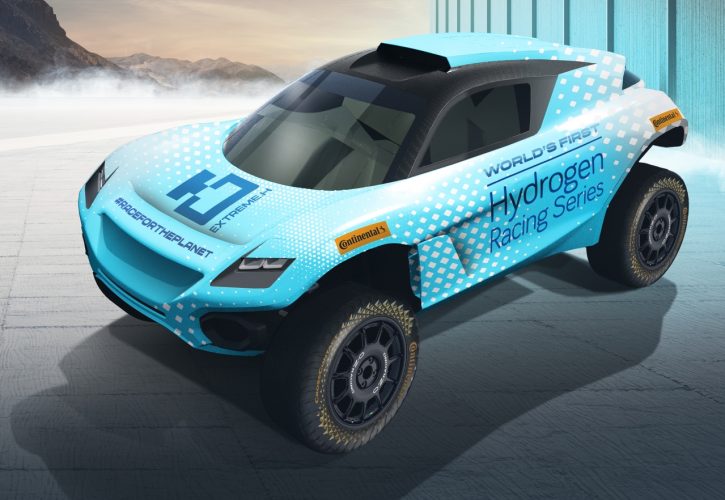
Formula 1, the FIA and hydrogen off-road racing series Extreme H are to collaborate in forming a new joint Hydrogen working group that will start work in 2025.
The objective is to evaluate how hydrogen technology can be used across motorsport for batteries and fuel cells, with a focus on increasing the sustainability credentials of transport and infrastructure.
Formula 1 will be represented in the group by chief technical officer Pat Symonds, while the FIA's delegate will be single-seater director Nikolas Tombazis.
Mark Grain, the technical director for sister series Extreme E, will attend on behalf of Extreme H which will the new name of the existing electric off-road series from 2025.
“It’s a privilege to be working alongside Formula 1 and the FIA as we continue to develop our world-first hydrogen racing proposition," said Grain, adding: "It’s a ground-breaking initiative.
"Our transition to Extreme H makes us the pioneers and first-ever testbed of hydrogen technology in motorsport – not only in our racing cars, but also transportation, infrastructure, refuelling processes and safety regulations."
Announced in August, Extreme H is planning a first full-speed shakedown of its hydrogen based racing technology due by the end of the year, and a full test programme to be conducted during 2024.
The governing body will be ultimately responsible for Extreme H's technical, sporting and safety regulations.
“Our sport has a tradition of bringing new technologies to the forefront of public perception in incredibly short timescales," explained Symonds.
“This working group enables a collaboration which will allow us to gain first-hand experience, and contribute to the understanding and development of the many aspects of hydrogen propulsion that Extreme H will embrace.

"We do this by being open-minded to all solutions and embracing cross-functional engineering," he continued. "This must include sustainable liquid hydrocarbon fuels, electrification and hydrogen.
“With climate change mitigation at the forefront of everyone’s mind we are committed to promoting sustainability and therefore need to explore all areas of decarbonisation of the mobility sector.
Symonds had previously told GP Racing magazine that a key problem with hydrogen technology was the need for much larger radiators to compensate for the large amount of heat produced by hydrogen generation.
"Is hydrogen a viable energy source for racing engines?" he asked. "I think the answer is undoubtably yes. But is it a better solution than, say, a blend of an advanced sustainable biofuel and e-fuel? That's a more difficult question."

© Extreme H
Formula 1 is due to use 100 per cent sustainable fuel from 2026, and plans to be net zero as a sport by 2030.
Le Mans and World Endurance Championship organiser Automobile Club de l’Ouest had been due to introduce a hydrogen-powered prototype class in 2026, but this has now been set back a year. It aims to have the entire top category powered by hydrogen from 2030.
Speaking on behalf of the FIA, Tombazis said that the working group was a welcome opportunity to pool resources across the various interested parties.
“As is currently the case across the entire FIA motorsport portfolio, we will take learnings from this collaboration for the benefit of our sport and mobility," he said.
“The FIA Technical Department has experience and knowhow in the area of hydrogen technology, which we will be bring to the working group along with sporting, safety and regulatory expertise."
Keep up to date with all the F1 news via Facebook and Twitter






